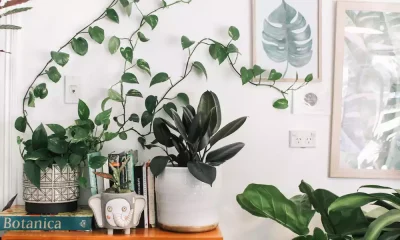Investment
6 Ways to Reduce the Costs of Your Rental Property

Profitability for a rental property is a function of two areas: maximizing rental income and minimizing expenses. Rental rates are often out of an investor’s control since they are a function of the market. On the other hand, controlling rental expenses is something that any investor can do to help maximize profits. Often, handling simple inspections and repairs can save big money in the long run. Find out the six ways you can reduce the costs of your rental property.
Inspect the Roof for Leaks
Many property owners ignore roofs on their buildings until faced with a problem. By then, it’s too late: Sheathing, framing, and perhaps ceilings can be damaged, requiring costly repair. It’s far better to have the roof inspected annually and have small issues handled before they lead to potentially serious and expensive damage.
Maintain the HVAC System
Annual inspection and maintenance of a rental unit’s HVAC system are critical to maximizing the system’s life. Taking care of minor maintenance and fixes can save hundreds of dollars in major repairs later and can possibly save the life of the unit.
Since an HVAC system is among the most costly items in a rental property, proper care can go a long way toward reducing rental property expenses. Teach your tenants about telltale signs of HVAC problems so they know to contact you before small issues become costly.
Change the HVAC System’s Air Filters
One of the simplest maintenance items to prolong the life of an HVAC system is changing the air filters. Unfortunately, many tenants fail to perform this simple task. If you manage your own units, be sure to change the air filters monthly. If you have professional management, have these personnel regularly perform this task.
Inspect and Maintain Appliances
Property owners don’t typically think about maintenance of major appliances. Yet consider the following: Refrigerators need to have the coils cleaned periodically to ensure good air circulation. Exhaust hoses in dryers need lint cleared before it becomes a fire hazard. Dishwashers have gaskets and filters that need occasional cleaning to prevent possible, costly leaks.
Consider Replacing Worn-Out Appliances and HVAC Systems With Newer Units
Spending a large sum of money on a new appliance instead of a small amount to repair an existing one may seem counterintuitive. However, you should always keep a long-term view. If the outdated air conditioning unit needs $600 in annual repairs, that’s $7,200 over a decade — and you still have a deteriorating unit. Installing a new one could make better economic sense.
According to Home Advisor, national averages for a central air conditioning unit range from about $3,700 to slightly more than $7,000.
Check for Plumbing Leaks
Look around faucets, under sinks, near the water heater, and around toilets for any signs of water leakage. Replacing a gasket is much cheaper than replacing damaged cabinets or flooring.
The six items above, most involving annual inspections, can help reduce rental property costs and increase profits. As a landlord, you’ll find that the adage “an ounce of prevention is worth a pound of cure” is a trustworthy principle.






